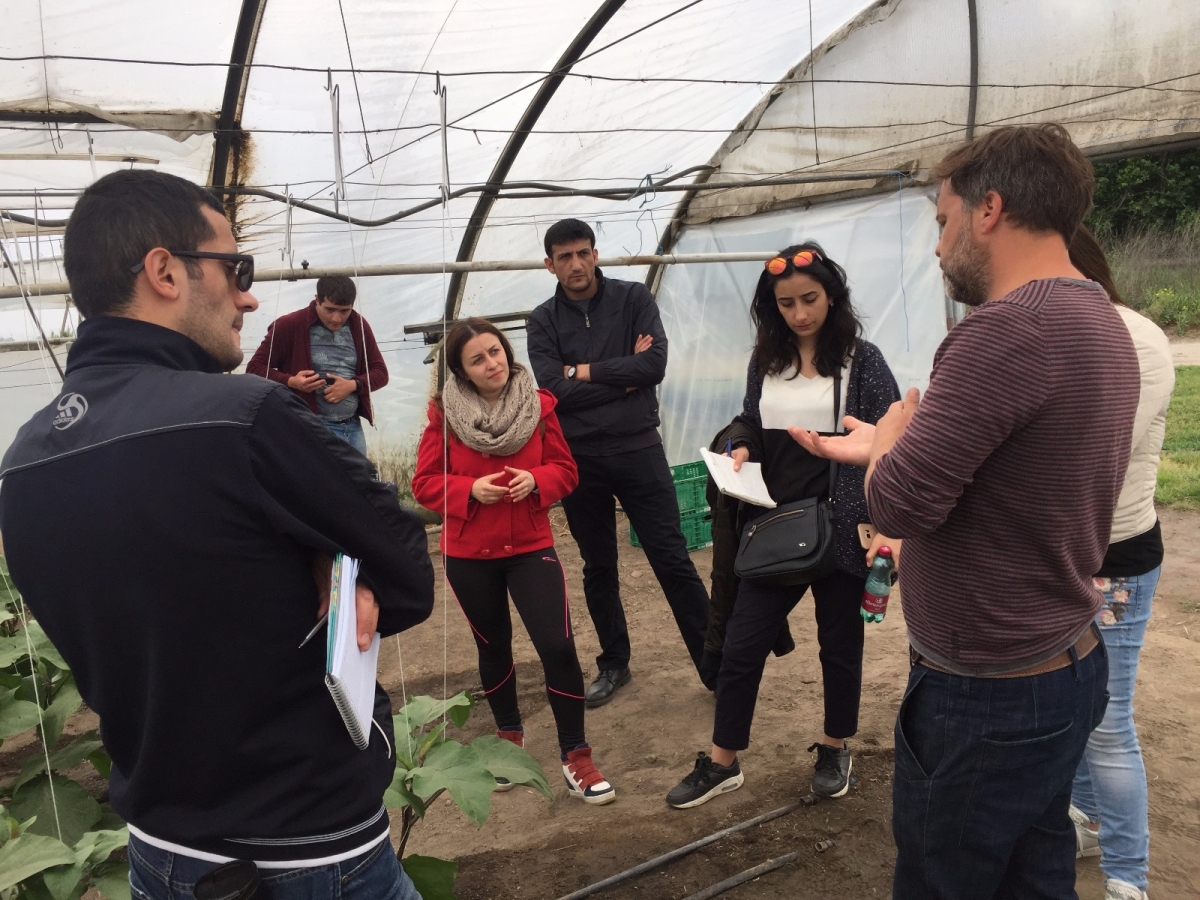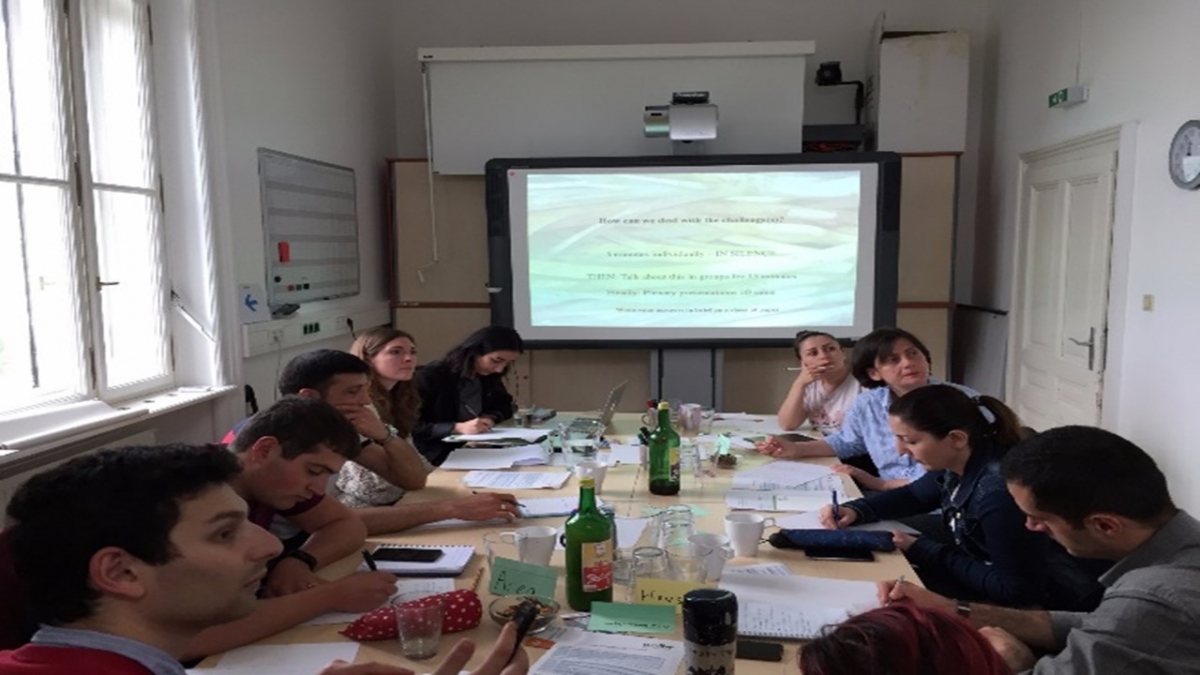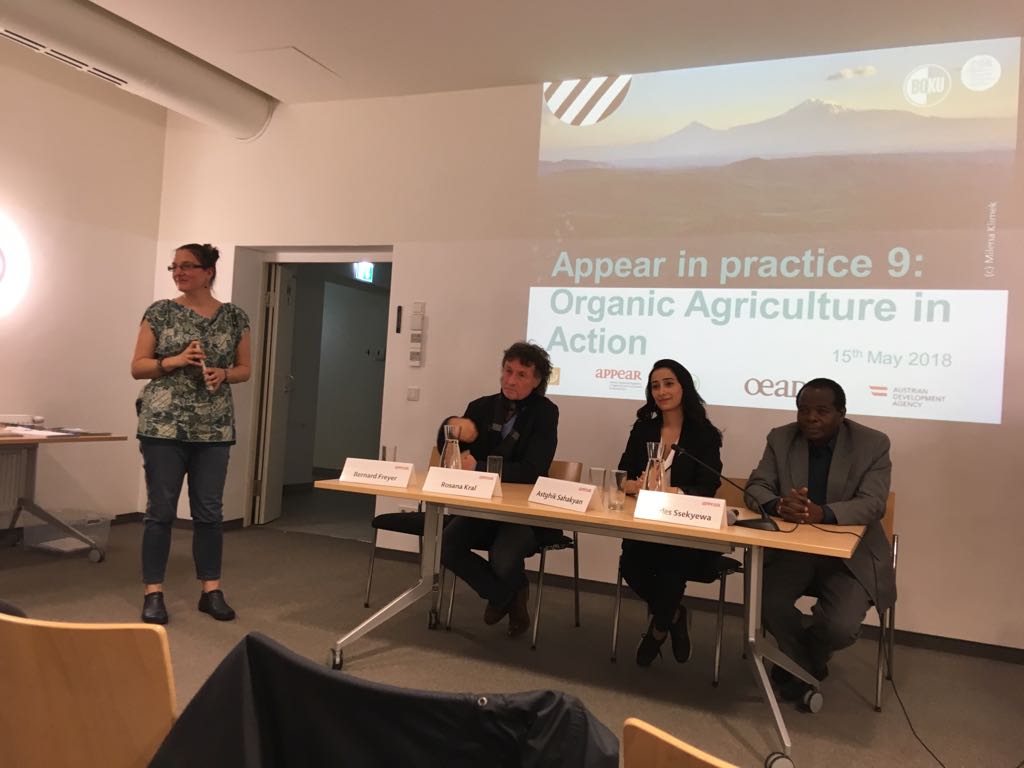-
About
- Our Work
- Get Involved
- Stay Updated
Organic agriculture training at BOKU University
Organic agriculture is a priority sector in Armenia's 2010-2020 Sustainable Strategy Program for Agricultural and Rural Development program.
Throughout the years, strong steps have been taken by local NGOs and international organizations to develop the organic sector in Armenia. In 2016 International Center for Agribusiness Research and Education (ICARE) foundation in collaboration with IFOAM-Organics International implemented ''Capacity Development Strategy and Plan for the Organic Agriculture Sector'' project which, among others, revealed the big need of specialists with up-to-date knowledge in organic agriculture in Armenia.
APPEAR funded ''Building Organic Agriculture in Armenia (BOAA)'' project which is a collaborative project between Armenian National Agrarian University (ANAU) and University of Natural Resources and Life Sciences, Vienna (BOKU) have been initiated to help the development of the organic sector in Armenia by fulfilling the need of organic professionals.
The project is aimed at developing organic agriculture master's curriculum which will encompass innovative pedagogical approaches and will promote the active participation of organic stakeholders. BOAA project provided an opportunity to ANAU professors Sasun Mamajanyan, Narine Hovhannisyan, Hovsep Grigoryan, project assistant and YPARD Armenia communications officer Astghik Sahakyan and organic tea producer Areg Galstyan to participate to training at BOKU University.
These 11-day training had multiple goals to reach: First, it was introduced to participatory curriculum development experiences, second introducing innovative and transdisciplinary teaching methodologies to teaching staff, and third revealing organic agriculture in Austria at its best through excursions to organic farms and vineyards and through face-to-face meetings with organic certification body representative and soil lab operators.
Teaching methods
 Very informative session and discussion were organized about pedagogical methods and teaching philosophy developed by BOAA project coordinator Milena Klimek and her colleagues at BOKU Anna Porcuna, Valentin Fiala, and Phillipp Dietrich. Useful insights were gained about ''facilitating'' the class rather than only ''teaching'', the d this still has to be achieved at ANAU.
Very informative session and discussion were organized about pedagogical methods and teaching philosophy developed by BOAA project coordinator Milena Klimek and her colleagues at BOKU Anna Porcuna, Valentin Fiala, and Phillipp Dietrich. Useful insights were gained about ''facilitating'' the class rather than only ''teaching'', the d this still has to be achieved at ANAU.Teaching methods like case-study approach, service learning were first presented and then discussed in a group. Participants pointed out on the effectiveness of each method, and pros and cons of application of each method at ANAU. It should be noted, that examples related to each method were much illustrative providing an opportunity for professors to grasp the material easily.
Excursions to organic farms

One thing is to read about organic agriculture in articles or in books, another thing is to see the spirit and true motivation of organic farmers in the field. Armenian team joined BOKU students for 2-day excursions to organic farms in lower Austria. First stop was at Ackerschön Community Supported Agriculture Hasendorf, which was a wonderful example of how small farms can be supported by community efforts.
The community members get fresh vegetables directly from the farm and they can themselves be part of harvesting process in the farm. Farm operators were in constant search for new plants that can be grown in their area and with trials and errors, they continuously improve their knowledge. This is one thing that most of the farmers in Armenia are afraid of and hopefully, younger generation with modern organic agriculture education (hopefully BOAA will be the pioneer in modern organic agriculture education) will be more proactive and ready to take the risks.

Nevertheless, an important fact that's definitely worth duplicating in Armenia is social responsibility of organic farms in Austria (be it involving students in farm works or organizing social events in farms). The reason behind the active social role of organic pharms in Austria is the philosophy of organic agriculture: that is, for organic farmers in Austria, organic production is not solely profit-making mechanism, it is the philosophy and the approaches of organic agriculture that are of high importance to them.
Project progress presentation at OeAD:
 On May 15th, an event at OeAD was organized where 2 projects on organic farming in Armenia and Uganda have been presented. The event was open to public and 70 people including researchers, students, university professors and media representatives were present at the event.
On May 15th, an event at OeAD was organized where 2 projects on organic farming in Armenia and Uganda have been presented. The event was open to public and 70 people including researchers, students, university professors and media representatives were present at the event.I, as a project assistant for BOAA project and YPARD Armenia communications person, presented the current state of organic agriculture in Armenia and BOAA project progress so far. A separate Q&A session was organized afterward and the audience had the chance to ask questions to presenters.
People were particularly interested in learning about effective methods for student involvement in farm work and it was nice that I could share the experience we have in Armenia and in other developing countries. The meeting was particularly useful in finding some grounds for collaboration and learning from each others experience.
Picture credit: Astghik Sahakyan
About the author
Related Posts
Comments
No comments made yet. Be the first to submit a commentBy accepting you will be accessing a service provided by a third-party external to https://archive.ypard.net/
Get in touch
Email: [email protected]
YPARD Global Coordination UnitHosted by AGRIDEA and the Czech University of Life Sciences Prague
Lausanne, Switzerland and Prague, Czech Republic - Our Work

